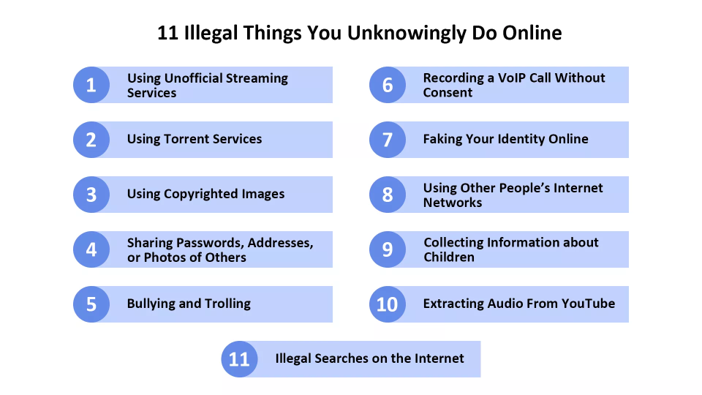
My top 5 list of most serious crimes online from the provided chart:
1. This may seem like an obvious choice, and it should be. Collecting this data without parental consent is very illegal and violates the Children’s Online Protection Act. The author Slynchuk also goes on to state that the act of impersonating or lying about age in order to speak or the information is also illegal.
2. Illegal searches are an interesting read, as I was unaware of the processes behind them. It states that
3. The activity of illegal searches is reported to the authorities to be monitored based on the searches. Google, for example, does not personally report these searches and will not show the requested information, but that does not mean nothing is being done.
4. Whether online or physically, using another identity or faking one is extremely illegal. It is not a matter of violating the terms of use, but it can also be used to speak to minors and/or deceive others.
5. It was comforting to read that cyberbullying is illegal, as even though this does not stop the act, it is comforting that something can be done and is not listed as victimless. The fact listed on how companies can report and take action is also nice to hear.
6. Sharing another password and photos in the author’s mind is on the same level as recording a call without content. If the child is underage, it is illegal, as previously discussed, but on another’s personal property, it is also illegal. This is related to recording calls, as you cannot record a call without content unless state law provides otherwise. This information can record and/or capture a voice, allowing the offender to set up a new account or worse.
Resources:
Children’s Online Privacy Protection Act. (2024, April 3). Federal Trade Commission. https://www.ftc.gov/legal-library/browse/statutes/childrens-online-privacy-protection-act